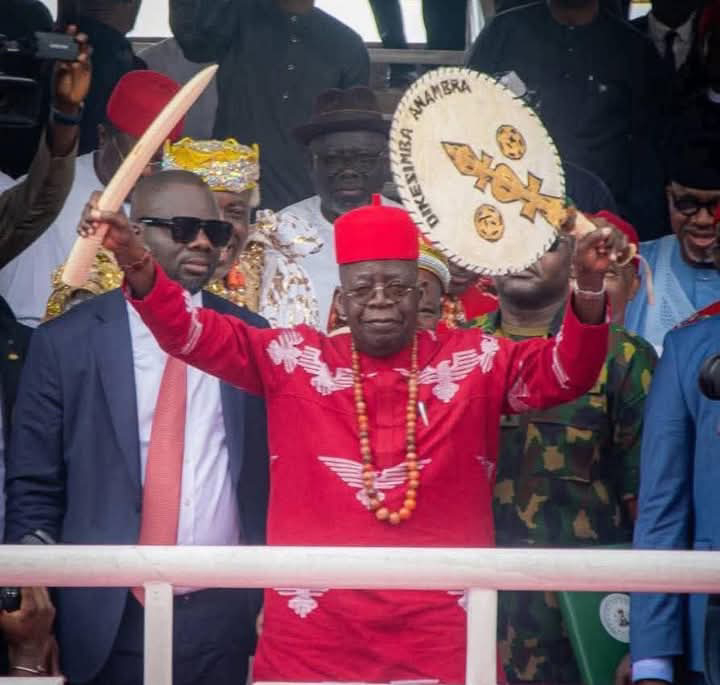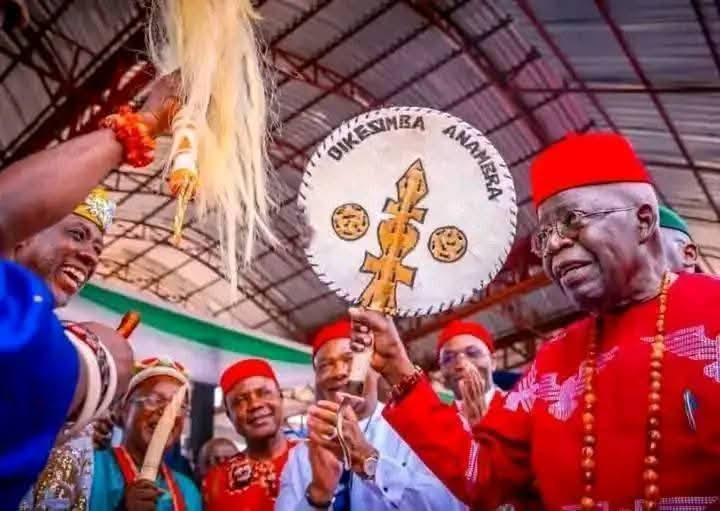By Victor Nwegede
As President Bola Ahmed Tinubu approaches the second anniversary of his administration on May 29, 2025, the political stage is abuzz with symbolism and scrutiny. A recent gesture from Anambra State—bestowing upon him the royal title “Dike Simba,” meaning “the strength from another land”—adds a layer of cultural endorsement that is both significant and revealing in the current socio-economic and political climate.
On the surface, this royal blessing is a positive sign. It represents a rare moment of cultural solidarity across regional lines. The Southeast, a region long felt to be politically marginalized, conferring such a title on a Southwestern leader suggests a desire for national unity. It may also be seen as an olive branch, opening doors to stronger federal attention to the region’s developmental needs.
But Nigeria, in 2025, is a country burdened by economic downturns, rising inflation, escalating insecurity, and waning public trust. In such a context, symbolism without substance can quickly become a liability. Citizens across the nation—civil servants, farmers, entrepreneurs, and the unemployed—are more interested in the Renewed Hope agenda’s delivery than in cultural pageantry.
The real question is this: has the President earned the title Dike Simba through impactful governance? Two years in, many Nigerians still struggle to see the dividends of the administration’s promises. The civil service remains bloated and underperforming. Workers’ welfare is inconsistent, with minimum wage negotiations dragging and industrial actions looming. Food prices are soaring, while insecurity continues to threaten agricultural output and rural livelihoods.
Transportation and infrastructure projects have seen some movement, but bottlenecks remain. The business environment, despite digital reforms, still feels uncertain to many local entrepreneurs and foreign investors. For democracy to thrive, citizens must not only witness change—they must feel it in their daily lives.
Royal blessings, especially from revered traditional institutions in places like Anambra, carry symbolic weight. But they also raise the stakes. The President must now match the honour with action. For “Dike Simba” to resonate as more than a title, President Tinubu must urgently confront the realities that Nigerians face. His policies must translate into affordable food, secure communities, functioning transportation, and credible reforms across all sectors.
As the May 29 milestone nears, history will not judge this administration by its titles or ceremonies. It will judge by outcomes—by the bread on the table, the safety in the streets, and the hope felt in the hearts of everyday Nigerians.
After all, strength from another land is only meaningful if it brings healing and progress to the land it now calls home.















